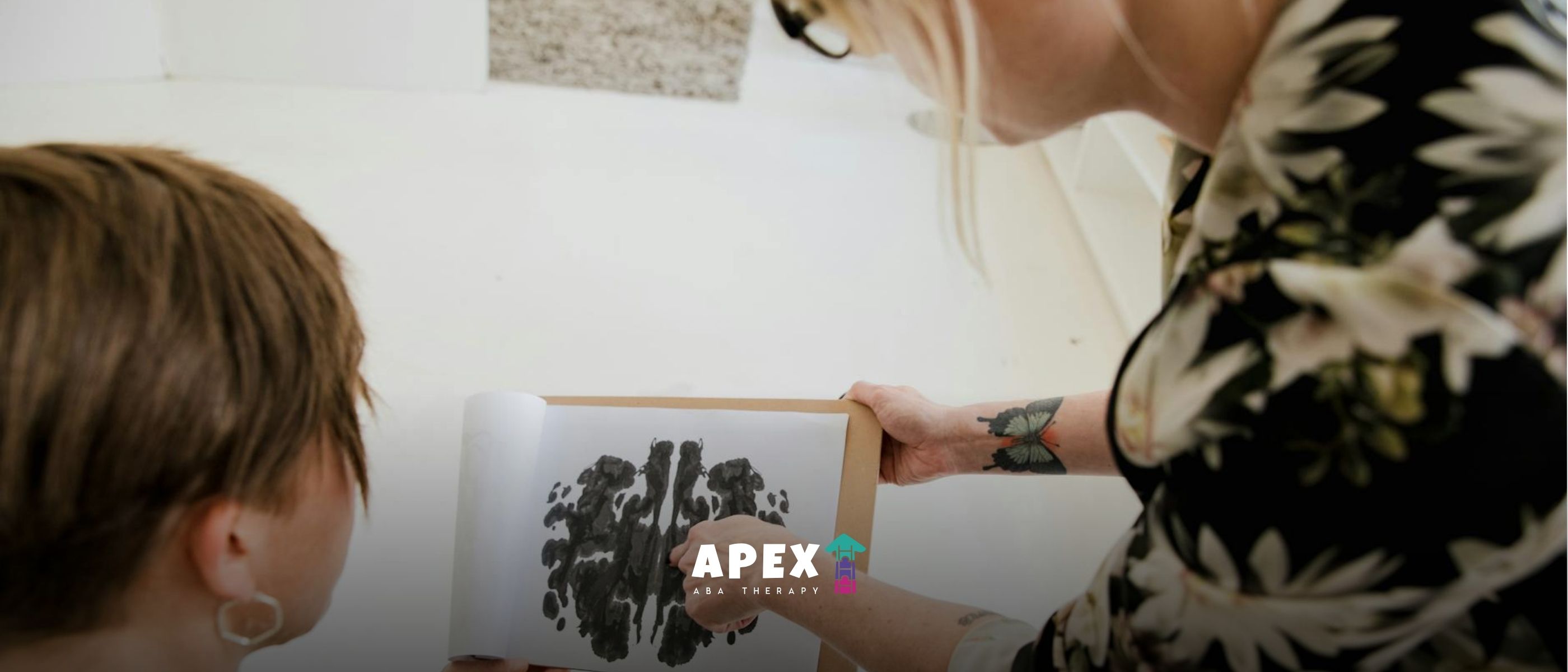How To Nurture Your Child's Progress in Autism?
One of the most important things you can do for your child is to nurture their progress and help them reach their potential. In this article, we will provide some tips on how to do just that.
.jpg)
How To Nurture Your Child's Progress in Autism?
Understanding Autism
Before we dive into ways to nurture your child's progress, it's essential to understand what autism is and how it can affect your child's development. Autism is a neurological disorder that affects communication and social skills. It can also affect behavior and sensory processing. Although every child with autism is unique and will have their own set of challenges and strengths, there are some common characteristics that are associated with the disorder.
For example, children with autism may have difficulty making eye contact or engaging in social interactions. They may also have trouble with verbal and nonverbal communication, such as understanding sarcasm or irony, or taking turns in conversation. Some children with autism may engage in repetitive behaviors or have specific interests that they focus on intensely.
It's important to remember that autism is a spectrum disorder, which means that the symptoms and severity of the disorder can vary widely from person to person. Some children with autism may require more support and intervention than others, but all children with autism can benefit from early diagnosis and appropriate interventions.
If you suspect that your child may have autism, it's important to talk to your pediatrician or a qualified healthcare provider as soon as possible. They can help you understand the diagnosis process and connect you with resources and support that can help you and your child navigate this complex and challenging disorder.
For more information on autism, please visit Autism Speaks.

Create a Supportive Environment
Creating an environment that is conducive to your child's growth is crucial. As a parent, it's your responsibility to provide a safe and supportive environment that allows your child to feel comfortable and secure. Children thrive in an environment that is predictable, calm, and nurturing.
One way to ensure your child feels safe and secure is by establishing a consistent routine. Children thrive on routine, and knowing what to expect can help them feel more in control and less anxious. A routine can include regular meal and nap times, designated play times, and even a set bedtime.
Another way to create a comfortable environment for your child is by providing a calm and quiet space for them to retreat to when they need it. This can be as simple as setting up a cozy reading nook with a soft rug and a few pillows, or designating a specific corner of the room for quiet play.
Additionally, it's important to make sure your child's physical environment is safe and free from hazards. This includes childproofing your home, securing loose cords and wires, and ensuring that any potentially dangerous items are out of reach.
By creating a safe, supportive, and nurturing environment for your child, you are setting them up for success and helping them to thrive.

Encourage Communication
Communication is an essential part of nurturing your child's progress. Encouraging your child to communicate in their own way is a crucial step in their development. Whether that's through speech, sign language, or other forms of communication, it's important to actively listen and respond in a supportive manner.
One of the best ways to encourage communication is by creating a safe and open environment for your child to express themselves. This can be done by setting aside specific times each day to talk and by engaging in activities that promote communication, such as reading, storytelling, or playing games.
Another way to foster communication skills is to model good communication habits yourself. This means being a good listener, using clear and concise language, and being patient when your child is trying to express themselves.
Remember, every child is unique and develops at their own pace. If your child is experiencing difficulty with communication, there are resources available to help. One such resource is the American Speech-Language-Hearing Association, which provides information and support for children and adults with communication disorders.
So, let's work together to support our children in their journey towards effective communication. By providing the right environment, modeling good communication habits, and seeking help when needed, we can help our children grow and thrive.
Develop Social Skills
Social skills can be challenging for children with autism, but they can be taught. As a parent or caregiver, it's important to be patient and understanding while also providing opportunities for your child to grow and learn.
Encourage your child to interact with others in a safe and supportive environment, and provide opportunities for them to practice their social skills. This can be achieved through playdates with other children, joining social groups, and participating in activities that promote social interaction.
One great resource is the Autism Society, which provides information and support for families of children with autism. They offer a variety of programs and services, including social skills groups and workshops, to help children with autism develop the skills they need to succeed in social situations. Additionally, many schools and community centers offer social skills classes or groups specifically designed for children with autism.
It's important to remember that every child is unique and may require different strategies to help them develop social skills. But with patience, understanding, and the right support, children with autism can learn to navigate social situations and form meaningful connections with others.
Promote Sensory Integration
Sensory processing issues are common in children with autism, and it's important to understand your child's sensory needs and provide them with the necessary tools to promote sensory integration. Sensory play is an excellent way to help your child explore and develop their senses while having fun. Consider activities such as playing with textured materials like sand, water beads, or play dough. You can also incorporate sensory bins filled with items that your child can manipulate and explore, such as rice or beans.
Another way to support your child's sensory needs is to create a sensory diet. This means providing your child with a variety of sensory experiences throughout the day to help keep them regulated. This can include activities like jumping on a trampoline, swinging, or doing yoga poses.
Creating a sensory-friendly environment is also essential. This can be achieved by minimizing sensory overload, such as loud noises or bright lights, and creating a calming space for your child to retreat to when they need to decompress. You can also use sensory tools such as weighted blankets or fidget toys to help your child stay calm and focused.
Provide Educational Support
Education is paramount in nurturing your child's progress. It's important to work with your child's school to create an individualized education plan (IEP) that meets their unique needs. An IEP is a written plan that outlines the education goals and specific services your child needs to succeed in school. It identifies any learning disabilities or challenges your child may have and outlines strategies to help them overcome those challenges.
In addition to supporting your child's education at school, it's important to provide educational support at home. You can work with your child on homework and provide them with educational resources that cater to their learning style. There are a variety of educational resources available online that can help support your child's learning, such as Khan Academy, Scholastic, and BrainPOP. These resources offer a wide range of topics, from basic math and reading skills to more advanced subjects like science and history.
It's also important to foster a love of learning in your child. Encourage them to explore new topics and interests, and provide them with opportunities to learn in a fun and engaging way. Whether it's through reading books, visiting museums, or watching educational videos, there are countless ways to make learning an enjoyable experience for your child.
Remember, education is a lifelong journey, and it's important to provide your child with the tools and resources they need to succeed. Together with their school, you can create a supportive and nurturing environment that empowers your child to achieve their full potential.
Seek Professional Help
Finally, seeking professional help is essential for nurturing your child's progress. While there are many things you can do at home to support your child, working with a team of professionals can make all the difference. A team of professionals, including doctors, therapists, and educators, can provide a comprehensive treatment plan tailored to your child's unique needs. With the right support, your child can reach their potential and thrive.
When it comes to finding professionals to work with, it's important to do your research. Look for providers who have experience working with children with similar needs to your child. Ask for recommendations from other parents or your child's school. You can also check online resources, like Psychology Today's therapist directory, to find providers in your area.
Remember, seeking professional help doesn't mean you're failing as a parent. It means you're doing everything you can to support your child's growth and development. With the right team of professionals and a strong support system, your child can overcome any obstacles and achieve their dreams.
Strategies for Addressing Challenging Behaviors in a Positive Way
Children with autism may exhibit challenging behaviors from time to time, such as aggression, self-injury, or tantrums. It's important to address these behaviors in a positive way that promotes learning and growth.
One effective strategy is to use positive reinforcement. This means rewarding your child for positive behavior rather than punishing them for negative behavior. For example, if your child has trouble with transitions, you can offer a reward for successfully transitioning from one activity to another without becoming upset.
Another strategy is to use visual supports. Many children with autism benefit from visual aids such as picture schedules or social stories that help them understand what is expected of them in different situations. Visual supports can be especially helpful when dealing with challenging behaviors by providing your child with a clear understanding of what is happening and what they need to do.
It's also important to remain calm and patient when addressing challenging behaviors. Children with autism may become overwhelmed or agitated during difficult situations, and responding in a calm and patient manner can help de-escalate the situation and prevent further outbursts.
Finally, it's essential to seek support from professionals who specialize in working with children with autism. A qualified therapist or behavioral specialist can provide guidance and support on how best to address challenging behaviors in a positive way that promotes growth and development.
By using strategies such as positive reinforcement, visual supports, remaining calm and patient, and seeking professional support when needed, parents can help their children navigate challenging situations in a positive way that promotes learning and growth.
Build a Community of Support
Building a community of support around your family can be incredibly beneficial for both you and your child. This can include friends, family, and other parents of autistic children who understand the unique challenges and experiences that come with raising a child with autism.
One way to build a community of support is by joining local support groups or parent networks. These groups provide an opportunity to connect with other parents who are going through similar experiences and can offer advice, guidance, and emotional support.
Another way to build a community of support is by reaching out to friends and family members who may not have experience with autism but are willing to learn and help in any way they can. This could include offering to babysit so you can have some time for self-care or providing meals during particularly stressful times.
It's also important to remember that building a community of support is a two-way street. Be sure to offer your own support and resources when possible, whether it's sharing helpful articles or websites or simply lending an ear when someone needs to talk.
By building a strong community of support, you can create a network of people who care about your family's well-being and are committed to helping you navigate the challenges that come with raising a child with autism.
FAQs
Can autism be cured?
There is no known cure for autism, but early intervention and therapy can help children with autism reach their full potential.
Is it possible for a child with autism to attend mainstream school?
Yes, it is possible for a child with autism to attend mainstream school. However, it's important to work with the school to create an individualized education plan (IEP) that meets the child's needs.
How can I help my child cope with sensory overload?
You can help your child cope with sensory overload by providing them with a quiet space to retreat to when they need it, using noise-canceling headphones or earplugs, and avoiding overwhelming environments when possible.
Is it normal for a child with autism to have difficulty making friends?
Yes, social skills can be challenging for children with autism. However, social skills can be taught and improved through practice and participation in social activities.
Conclusion
In conclusion, nurturing your child's progress in autism requires patience, understanding, and a supportive environment. By following the tips outlined in this article, you can help your child reach their potential and achieve their goals. Remember to celebrate your child's progress, no matter how small, and always provide them with the love and support they need.
Sources
- https://www.helpguide.org/articles/autism-learning-disabilities/
- https://www.webmd.com/brain/autism/parenting-child-with-autism
- https://embrace-autism.com/nurturing-autistic-children/
- https://timesofindia.indiatimes.com/skills-for-children-with-autism/
- https://www.autismspeaks.org/sensory-issues
- https://www.healthychildren.org/English/ages-stages/baby/Pages
Frequently Asked Questions
.jpg)
Autism And Bed Wetting: Unlocking Solutions
Explore the connection between autism and bedwetting and find practical insights and solutions for parents and caregivers. Discover how understanding and support can make a difference in managing this common challenge for children and individuals on the autism spectrum.

Proven Examples of Smart Goals for Students with Autism
Unlock the potential of students with autism through proven examples of SMART goals. Set them up for success!
.jpg)
What is the Sensory Processing Disorder ICD-10 Code?
If you or someone you know has been diagnosed with Sensory Processing Disorder (SPD), you may have heard of the ICD-10 code. In this article, we'll explain what the SPD ICD-10 code is, what it means, and why it's important.

Understanding Vestibular Stimming in Autism
Demystifying vestibular stimming in autism: Understand the impact, strategies, and support for individuals. Uncover the power of self-regulation through stimming.

Do Amish Kids Get Autism?
Explore the prevalence of autism in Amish children and uncover the factors that may contribute to this phenomenon. Delve into the unique characteristics of Amish communities and their impact on autism rates.

Breaking Barriers: Free Sensory Toys for Autism That Make a Difference
Discover life-changing free sensory toys for autism! Unlock the power of sensory play for children with autism.

Famous People Thriving with Autism or Aspergers Syndrome
Discover the extraordinary journeys of famous people thriving with autism and Asperger's syndrome. Unveil the inspiring stories of icons who break stereotypes.

IEP Goals for Autism: Ultimate Guide
Unlock the potential: Constructing meaningful IEP goals for autism to support your child's growth and development. Discover strategies and examples!

Young Celebrities with Autism
Discover inspiring young celebrities with autism and their journeys in entertainment and advocacy.
.jpg)
Autism Hand Posturing: Causes, Types, and Management
Autism hand posturing refers to repetitive and often purposeless movements or postures of the hands and fingers seen in individuals with autism. These movements range from simple hand flapping to more complex finger twisting and tapping.

Distinguishing ADHD vs Autism Stimming
ADHD stimming vs autism stimming: Discover the motivations and characteristics behind these behaviors in individuals.

Addressing Rigid Thinking in Autism
Unlocking flexibility in autism! Discover strategies, therapy, and tools to address rigid thinking for a brighter future.

DSM 6 Release Date Revealed
Unlock the future with DSM-6! Discover the release date and anticipated changes in the mental health landscape.

Why Do Autistic People Rock?
Uncover insights with empathy, exploring the diverse ways rocking serves as a coping mechanism and sensory regulation for individuals on the autism spectrum. Join us in celebrating the beauty of neurodiversity, fostering understanding and appreciation for this distinctive aspect of autistic experience.

Signs Your Toddler Is Not Autistic
Discover reassuring signs that your toddler may not be autistic in this human-centered guide. Explore the joy of your child's unique developmental journey, celebrating their social engagement and communication skills.
.jpg)
Facial Features & Physical Characteristics Of Autism
Some researchers believe that these physical characteristics are related to the underlying neurological differences in individuals with autism.

The Three Main Causes of Autism: Exploring Genetics, Environment, and Brain Differences
Autism is influenced by genetics, environmental factors, and brain differences. Learn how these three causes contribute to the development of the condition.

What are the Common Behaviors of Autism?
Autism behaviors can vary widely. Learn about the most common traits, from social difficulties to sensory sensitivities, and how ABA therapy can support progress.

What Age is Too Late for ABA Therapy?
It’s never too late to start ABA therapy. Discover how children, teens, and adults can still make meaningful progress with personalized ABA support.

Is In-Home ABA the Right Fit for Your Child? Here’s What You Need to Know
In-home ABA therapy offers a tailored approach to support your child’s development. Learn how it can improve key skills like communication, social interaction, and more.

How Families Can Make ABA Therapy a Positive and Successful Experience
Learn how families can ensure ABA therapy is a positive, successful experience. Discover tips for involvement, consistency, and support to make ABA effective.

Can a Child Have Autism and Still Talk Normally?
Can a Child Have Autism and Still Talk Normally?

What Are the Red Flags for Autism in a 2-Year-Old?
Autism Red Flags in 2-Year-Old Children | Apex ABA

Is Autism a Lifelong Condition?
Is Autism a Lifelong Condition? Understanding The Journey

Best Age to Start ABA Therapy & What Parents Should Know
Best Age to Begin ABA Therapy for Children | Apex ABA

What’s the Difference Between High-Functioning Autism and Asperger’s?
Difference Between High-Functioning Autism and Asperger’s

ABA Therapy Enhancing Social Skills: A Key to Improved Communication and Interaction for Children with Autism
How ABA Therapy Helps Children Build Social Skills

Misconceptions About ABA Therapy: Clearing Up the Myths
Common Misconceptions About ABA Therapy | Apex ABA

What Does It Mean to Be “On the Spectrum”?
What Does It Mean to Be on the Autism Spectrum? | Apex ABA

Understanding the Power of Functional Behavior Assessment ABA
Effective ABA Techniques for Behavioral Intervention

Discover How ABA Helps ADHD in Your Child’s Life
How ABA Therapy Helps Children with ADHD | Apex ABA

Life-Changing ABA Therapy Case Studies You Need to Know
Real Success Stories from ABA Therapy Journeys | Apex ABA

Can Children “Outgrow” Autism?
Can Children Outgrow Autism? Understanding the Facts

Is Autism a Mental Illness or a Developmental Disorder?
Mental Illness or Developmental Disorder Explained

Is Autism More Common in Boys Than Girls?
Autism in Boys vs Girls: What the Research Reveals

What is the Difference Between Autism and Sensory Processing Disorder?
Autism vs Sensory Processing Disorder Differences | Apex ABA

What's the Difference Between Autism and Speech Delay?
Autism vs Speech Delay & Key Differences Explained | Apex

ABA Therapy in North Carolina: A Complete Guide for Families
Learn everything about ABA therapy in North Carolina, including services, costs, insurance coverage, and how to choose the best ABA provider in North Carolina.

ABA Therapy vs Preschool: Making the Right Choice Explained
Learn the key differences between ABA therapy and preschool to help you choose the best option for supporting your child’s early learning and development.

Which Personality Type Is Most Likely to Be Autistic?
Which Personality Type Is Most Likely to Be Autistic? | Apex ABA

Why Consistency Matters: What Happens If ABA Therapy Ends Prematurely
What Happens If ABA Therapy Is Stopped Too Early? | Apex ABA

How Can You Gain an Autistic Person’s Attention? Tips for Meaningful Connection
How Can You Gain an Autistic Person’s Attention?

Sensory Sensitivity and Sixth Sense: What Autism Research Shows
Do Autistic People Have Sixth Sense? | Apex ABA

What Happens If Autism Is Left Untreated?
Can Autism Get Worse If Untreated? | Apex ABA

What Not To Do With An Autistic Child: Avoid These 10 Mistakes
What Not To Do With An Autistic Child? | Apex ABA

Coping with Regressive Autism: Tips for Parents
What is Regressive Autism? | Apex ABA

Do Autistic Kids Live with Parents Forever? Here’s the Reality
Do autistic kids live with parents forever? Discover the facts about independence and living arrangements in autism with expert-backed insights.

Red Flags in ABA Therapy: What Parents Must Watch For
What are the red flags in ABA therapy? Learn to identify warning signs for safe, effective autism treatment in this blog.

Can You Go from Level 3 Autism to Level 1? Is It Possible?
Can you go from level 3 autism to level 1? Learn about progress, therapy, and support options with expert help from Apex ABA.

Autism vs Introversion: How to Tell the Difference
Is it autism or just introversion? Learn the key differences and signs with expert insights from Apex ABA.

ABA for Managing Transitions: Tips to Ease Change for Kids
Learn how ABA for managing transitions helps children with autism handle change smoothly.

Understanding the 7 Dimensions of ABA for Better Outcomes
Discover the 7 Dimensions of ABA and how they can lead to better outcomes.

5 Unique Autistic Love Languages You Should Know About
Discover the 5 unique autistic love languages that can enhance your relationships.

Transforming Futures: Improving Lives of Kids with Autism
Discover how innovative strategies are focused on improving lives of kids with autism.

ABA Therapy Techniques for Addressing Repetitive Behaviors in Autism
Harnessing ABA Strategies to Tackle Repetitive Behaviors in Autism

The Role of ABA Therapy in Enhancing Communication Skills
Transforming Communication for Children with Autism Through ABA Therapy

How ABA Therapy Supports Effective Communication in Nonverbal Children
Unlocking Speech Through ABA: Transformative Paths for Nonverbal Children

How to Help Your Child Transfer Skills Learned in ABA Therapy to Real Life
Unlocking Real-World Success for Children in ABA Therapy

How ABA Therapy Helps Children Develop Better Organizational Skills
Empowering Children with ABA Therapy for Enhanced Organizational Skills

The Importance of Creating a Structured Routine in ABA Therapy
How Structured Routines Transform ABA Therapy for Autism

The Role of ABA Therapy in Developing Conflict Resolution Skills
How ABA Therapy Transforms Conflict Resolution Competence

The Importance of Generalization in ABA Therapy for Autism
Unraveling the Role of Generalization in Enhancing ABA Therapy Outcomes

Why ABA Therapy is Crucial for Parents of Children with Autism
The Transformative Impact of ABA Therapy on Families with Autistic Children

How to Involve Parents in the ABA Therapy Process
Maximize Parent Engagement in ABA Therapy for Better Outcomes

What are the Core Principles of ABA Therapy?
Exploring the Cornerstones of Applied Behavior Analysis

Why Communication is Key in ABA Therapy for Autism
The Crucial Role of Communication in ABA Therapy for Autism

Why ABA Therapy Works for Children with Autism Regardless of Severity
Effective ABA Interventions for All Levels of Autism

Why It’s Important to Maintain a Balanced Approach to ABA Therapy
Balancing Effectiveness and Ethics in ABA Therapy

The Role of ABA Therapy in Developing Adaptive Behavior Skills
Exploring How ABA Therapy Transforms Lives

The Benefits of Combining ABA Therapy with Speech Therapy
Maximizing Development with Integrated Therapy Approaches

What to Expect During an ABA Therapy Session
Demystifying ABA Therapy Sessions: A Comprehensive Overview

How ABA Therapy Enhances Cognitive Functioning in Children with Autism
Exploring the Influence of Applied Behavior Analysis on Autism Cognition

How ABA Therapy Helps Children with Autism with Transitions Between Activities
Easing Transitions for Children with Autism: The Role of ABA Therapy

How to Foster Cooperation Between Parents and Therapists in ABA Therapy
Building Effective Partnerships in ABA Therapy

The Role of Positive Reinforcement in ABA Therapy
Exploring the Impact of Positive Reinforcement in Modern ABA Therapy

Why ABA Therapy is Effective for Children of All Ages
Understanding the Reach and Impact of ABA Therapy Across Age Groups

How to Support Your Child’s Emotional Growth with ABA Therapy
Harnessing ABA Therapy for Enhancing Emotional Development in Children with Autism

The Role of ABA Therapy in Enhancing Peer Relationships for Children with Autism
Harnessing ABA Therapy to Boost Social Connections Among Autistic Children

How to Overcome Common Challenges in ABA Therapy
Navigating Hurdles in ABA Therapy: Strategies and Solutions

How to Manage Behavioral Expectations with ABA Therapy
Understanding Applied Behavior Analysis in Behavioral Management

How ABA Therapy Promotes Emotional Regulation in Children with Autism
Unlocking Emotional Balance: ABA Therapy's Role in Autism

How ABA Therapy Improves Social Skills in Children with Autism
Harnessing ABA Therapy to Enhance Social Competency in Autistic Children

The Role of ABA Therapy in Classroom Success for Children with Autism
Harnessing ABA for Academic and Social Growth in Autism

The Importance of Evaluating and Revising ABA Therapy Goals Regularly
Regular Evaluations: The Cornerstone of ABA Therapy Success

How to Choose the Right ABA Therapy Program for Your Child
Finding the Perfect ABA Therapy Fit for Your Child

The Role of Behavior Analysts in Implementing ABA Therapy
Understanding the Vital Contributions of Behavior Analysts in ABA Therapy

The Role of RBTs (Registered Behavior Technicians) in ABA Therapy
A Closer Look at the Essential Work of RBTs in ABA Therapy

What Makes ABA Therapy Effective for Different Learning Styles?
Unraveling the Flexibility and Effectiveness of ABA Therapy

Understanding the Importance of Data Collection in ABA Therapy
The Role of Data in Shaping Effective ABA Therapy

How ABA Therapy Helps with Toilet Training in Children with Autism
Unlocking Independence: ABA's Role in Autism Toilet Training

The Importance of Encouraging Natural Play in ABA Therapy
Revolutionizing ABA Therapy with Natural Play

How to Make the Most of ABA Therapy at Home
Enhancing ABA Therapy Practices Within Your Home

How to Make ABA Therapy Fun and Engaging for Children with Autism
Transforming ABA Therapy into a Fun Learning Journey

The Role of ABA Therapy in Addressing Verbal and Nonverbal Communication in Autism
Enhancing Communication Skills in Autism Through ABA Therapy

Understanding the Role of Family in ABA Therapy for Autism
The Crucial Impact of Family Engagement in Autism Therapy

How to Handle Setbacks and Challenges in ABA Therapy
Navigating Difficulties and Setbacks in ABA Therapy for Children

How ABA Therapy Can Help Children Build Stronger Relationships with Peers
Unpacking the Influence of ABA Therapy on Peer Relationships in Children

Understanding the Concept of Shaping in ABA Therapy
Demystifying Shaping Techniques in Applied Behavior Analysis

How ABA Therapy Enhances Independent Living Skills in Autism
Unlocking Independence: The Role of ABA Therapy in Autism
.jpg)
90+ Reading Statistics, Facts and Demographics
In this article, we will dive into 60 reading statistics that shed light on the importance of reading and its impact on different aspects of life.



